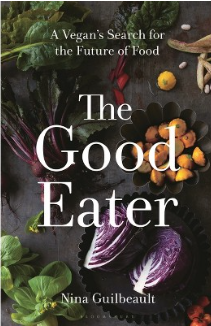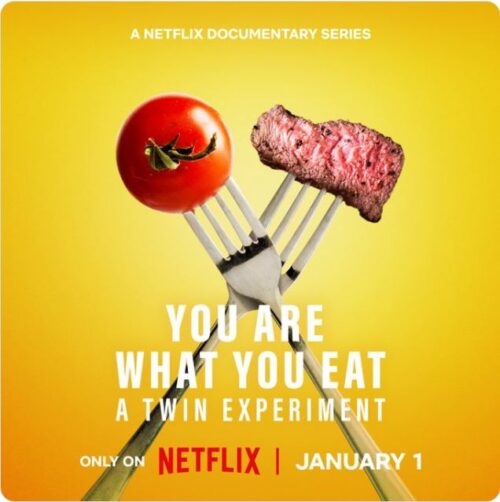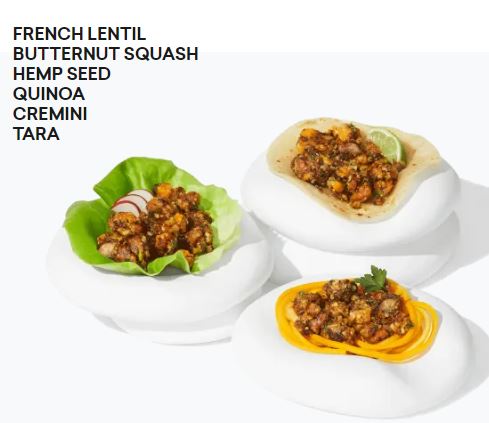Let’s do two at once—studies funded by gthe beef industry.
I. BEEF AND MUSCLES
I learned about this one from a headline in Food Navigator — Europe’s daily newsletter: Muscle protein synthesis more successful with beef than plant-based protein in older people, study finds
One look at the headline and I wanted to know: Who paid for this?
The study: Higher Muscle Protein Synthesis Rates Following Ingestion of an Omnivorous Meal Compared with an Isocaloric and Isonitrogenous Vegan Meal in Healthy, Older Adults. Journal of Nutrition. 2023. DOI:https://doi.org/10.1016/j.tjnut.2023.11.004.
Purpose: Plant-derived proteins are considered to have fewer anabolic properties when compared with animal-derived proteins…So far, no study has compared the anabolic response following ingestion of an omnivorous compared with a vegan meal.
Methods: In a randomized, counter-balanced, cross-over design, 16 older (65–85 y) adults (8 males, 8 females) underwent 2 test days. On one day, participants consumed a whole-food omnivorous meal containing beef as the primary source of protein (0.45 g protein/kg body mass; MEAT). On the other day, participants consumed an isonitrogenous and isocaloric whole-food vegan meal (PLANT).
Results: MEAT increased plasma essential amino acid concentrations more than PLANT over the 6-h postprandial period (incremental area under curve 87 ± 37 compared with 38 ± 54 mmol·6 h/L, respectively; P-interaction < 0.01). Ingestion of MEAT resulted in ∼47% higher postprandial muscle protein synthesis rates when compared with the ingestion of PLANT (0.052 ± 0.023 and 0.035 ± 0.021 %/h, respectively; paired-samples t test: P = 0.037).
Conclusions: Ingestion of a whole-food omnivorous meal containing beef results in greater postprandial muscle protein synthesis rates when compared with the ingestion of an isonitrogenous whole-food vegan meal in healthy, older adults.
And now to answer my question:
- Conflict of interest: [two of the authors] received research grants, consulting fees, speaking honoraria, or a combination of these for research on the impact of exercise and nutrition on muscle metabolism. A full overview on research funding is provided at: https://www.maastrichtuniversity.nl/l.vanloon. All other authors report no conflicts of interest.
- Funding: This study was funded in part by The Beef Checkoff, Denver, USA, and Vion Food Group, Boxtel, The Netherlands….The funders had no role in data collection and analysis, decision to publish, or preparation of the manuscript.
Comment: The Beef Checkoff is the USDA-sponsored research-and-marketing program which taxes beef producers and uses the funds to promote beef sales. Maybe the funder had no role as stated, but the checkoff is unlikely to fund research that is not in its best interest.
The meat industry wants everyone to believe that meat is superior to plants, as food, and eating vegan diets is hazardous to health. Hence, this research.
Something is seriously wrong when it is this easy to guess who paid for a study from its title alone.
II. BEEF AND MENTAL HEALTH
Just when I was ready to post that item, I ran across another one.
The study: Meat consumption & positive mental health: A scoping review. Preventive Medicine Reports. Volume 37, January 2024, 102556.
Highlight: “The majority of studies showed no differences between meat consumers and meat abstainers in positive psychological functioning.”
Results: “Eight of the 13 studies demonstrated no differences between the groups on positive psychological functioning, three studies showed mixed results, and two studies showed that compared to meat abstainers, meat consumers had greater self-esteem, ‘positive mental health’, and ‘meaning in life.'”
Conclusion [a positive spin]: “Although a small minority of studies showed that meat consumers had more positive psychological functioning, no studies suggested that meat abstainers did.”
Funding source: This study was in part funded via an unrestricted research grant from the Beef Checkoff, through the National Cattlemen’s Beef Association. The sponsor of the study had no role in the study design, data collection, data analysis, data interpretation, or writing of the report.
Declaration of competing interest: [The first author] previously received funding from the Beef Checkoff, through the National Cattlemen’s Beef Association.
Comment: This review caught my attention because it found a null result: beef eating has no effect on mental health. This is unusual for industry-funded studies. But the article contains a positive spin: some studies do in fact find benefits of beef eating whereas none find this result from not eating beeef. Make of this what you will. I think the Highlight says all you need to know. Industry funding muddies interpretation of research results. It’s best to avoid taking it.






